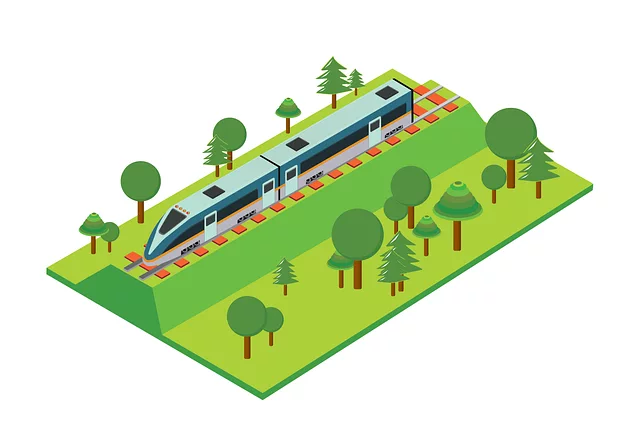Kava tea, native to Bali, is a natural anxiety reliever renowned for its calming effects without drowsiness or dependency. Scientifically known as Piper methysticum, it contains kavalactones that interact with GABA receptors in the body. This traditional beverage has gained global attention for its therapeutic benefits and potential to reduce stress levels. While similar to Bali kratom powder, Kava tea offers distinct advantages like no interference with medications and milder side effects. Both natural remedies, from different plants native to Southeast Asia, provide relaxation and anxiety management options, each with unique properties and user experiences.
Kava tea, a traditional herbal drink rooted in Pacific Island cultures, is gaining modern recognition for its remarkable relaxation and anxiety-relieving properties. This natural remedy has been used for centuries, with its origins tracing back to the lush islands of Fiji, Samoa, and Hawaii. Beyond cultural significance, Kava offers scientific backing for managing stress and promoting calmness. This article explores Kava’s unique benefits, compares it to similar herbs like Bali Kratom Powder, provides preparation tips, and delves into its potential advantages for those seeking natural anxiety relief.
- Understanding Kava Tea: Origins and Cultural Significance
- The Science Behind Kava's Relaxant Properties
- Benefits of Kava Tea for Anxiety Relief
- Comparing Kava to Other Herbal Remedies for Anxiety
- How to Prepare and Enjoy Kava Tea
- Exploring Bali Kratom Powder: A Similar Herb with Potential Benefits
Understanding Kava Tea: Origins and Cultural Significance

Kava tea, often hailed as a natural remedy for relaxation and anxiety relief, has its roots in the lush tropical islands of the South Pacific, particularly Bali. Known scientifically as Piper methysticum, this herb has been a cherished part of Balinese culture and traditional medicine for centuries. The plant thrives in the island’s volcanic soil, absorbing its unique mineral composition and contributing to the distinct flavor and therapeutic properties of Kava tea.
In many Balinese communities, Kava holds cultural significance, serving as a social lubricant during gatherings and ceremonies. The preparation process involves carefully grinding the root into a fine powder, similar to Bali kratom powder, which is then mixed with water to create a warm and soothing beverage. This age-old tradition has gained global recognition for its potential benefits in promoting calmness and reducing stress levels.
The Science Behind Kava's Relaxant Properties

The relaxing effects of Kava Tea have been studied extensively, with a particular focus on its active compounds known as kavalactones. These unique chemicals are believed to interact with the body’s GABA receptors, enhancing the production of gamma-aminobutyric acid (GABA) – a neurotransmitter that regulates nerve activity and promotes relaxation. This interaction can help reduce anxiety and create a calming effect, making Kava Tea a popular choice for those seeking natural relief from stress and tension.
Research also suggests that kavalactones possess anti-inflammatory properties, which may contribute to their overall soothing benefits. Additionally, some studies hint at potential antimicrobial and antiviral effects, further highlighting the multifaceted nature of this ancient herbal remedy. While often associated with Bali Kratom Powder, Kava’s primary source, modern research continues to uncover its therapeutic applications, solidifying its position as a valuable natural resource for promoting relaxation and anxiety relief.
Benefits of Kava Tea for Anxiety Relief

Kava tea, a traditional herbal beverage with a rich history in Bali and other South Pacific islands, has gained popularity worldwide for its potential anxiety-relieving properties. This soothing drink, made from the roots of the Kava plant (Piper methysticum), contains compounds that interact with the body’s natural chemistry to promote relaxation and reduce stress. Studies have shown that kava can effectively lower anxiety levels and improve overall mental well-being without causing drowsiness or dependency, setting it apart from many pharmaceutical options.
The benefits of kava tea extend beyond just calmness and relaxation. Research suggests that it may help alleviate symptoms of depression and insomnia, making it a valuable tool in managing various mental health concerns. Additionally, unlike some other herbal remedies, kava does not interfere with common medications or have severe side effects, making it a safer alternative for many individuals looking to manage anxiety naturally. Even when compared to popular options like Bali kratom powder, kava tea stands out for its gentleness and wide availability.
Comparing Kava to Other Herbal Remedies for Anxiety

When it comes to natural remedies for anxiety, Kava tea stands out as a unique and effective option, but how does it compare to other popular herbal treatments? One direct competitor in this space is Bali Kratom Powder, which has gained significant attention for its potential calming effects. While both offer natural alternatives to pharmaceutical solutions, they differ in origin, composition, and mode of action.
Kava is derived from the root of the Kava-kava plant, native to the Pacific Islands, and is known for its soothing properties. On the other hand, Bali Kratom Powder comes from the leaves of the Mitragyna speciosa tree, primarily found in Southeast Asia. Both have been used traditionally for centuries, but modern research provides insights into their specific benefits. Kava is celebrated for its ability to reduce stress and promote relaxation without drowsiness, while Bali Kratom Powder has been studied for its potential pain-relieving and mood-enhancing effects, making it a popular choice among those seeking alternative treatments for anxiety and other conditions.
How to Prepare and Enjoy Kava Tea

To prepare kava tea, start by combining a heaping teaspoon of dried kava root with 8 ounces of boiling water. Let it steep for 5-10 minutes to unlock its calming properties. The result is a rich, earthy brew that’s perfect for winding down after a long day. For an enhanced experience, consider mixing in a touch of honey or lemon to balance the flavor and further support relaxation.
Enjoy your kava tea hot or cold, with a dash of Bali kratom powder for an extra boost of natural well-being. This combination can help soothe anxious thoughts and promote a sense of tranquility, making it an ideal beverage for those seeking anxiety relief and a moment to simply relax.
Exploring Bali Kratom Powder: A Similar Herb with Potential Benefits

Bali Kratom Powder, a popular herb native to Southeast Asia, shares some similarities with kava tea in terms of its potential relaxation and anxiety-relieving properties. Both plants have been used for centuries by local communities for their calming effects. The Bali kratom variety, scientifically known as Mitragyna speciosa, contains various alkaloids that interact with the body’s opioid receptors, similar to kava’s active compounds.
This powder is derived from the leaves of the plant and comes in different strains, each offering unique effects. Users often report a sense of well-being, reduced stress, and improved mood when consuming Bali kratom. Like kava tea, it is believed to stimulate the production of serotonin and dopamine, contributing to a relaxed state. However, it’s essential to approach these herbs with caution and consult experts or healthcare providers for personalized guidance due to individual variations in tolerance and effectiveness.
Kava tea, with its rich history and scientific backing, offers a natural and effective way to manage anxiety. Its unique properties make it a compelling alternative to traditional treatments, providing a calming experience without the side effects often associated with prescription medications. While Bali Kratom Powder shares some similar benefits, kava stands out for its cultural significance and well-researched effects on relaxation. Incorporating kava tea into your routine could be a game-changer in promoting mental wellness, offering a simple yet powerful tool to navigate life’s stresses.






